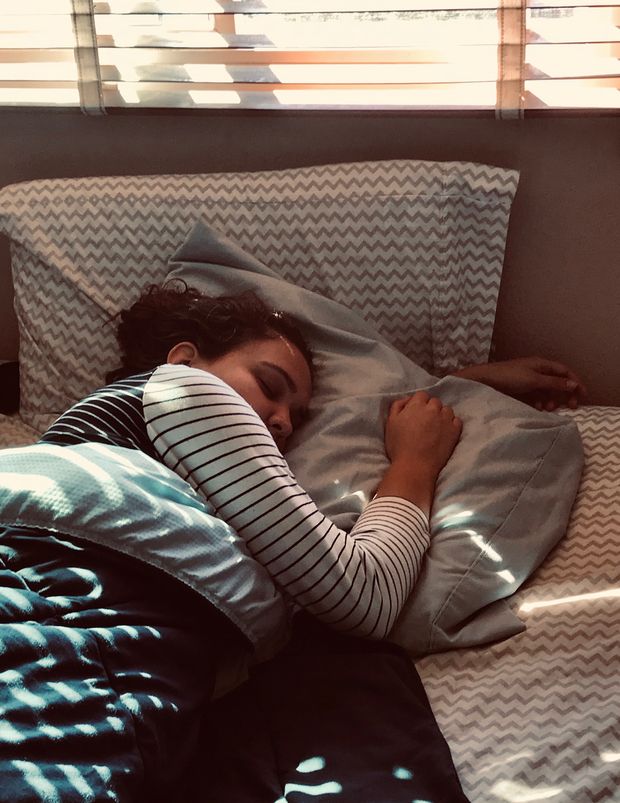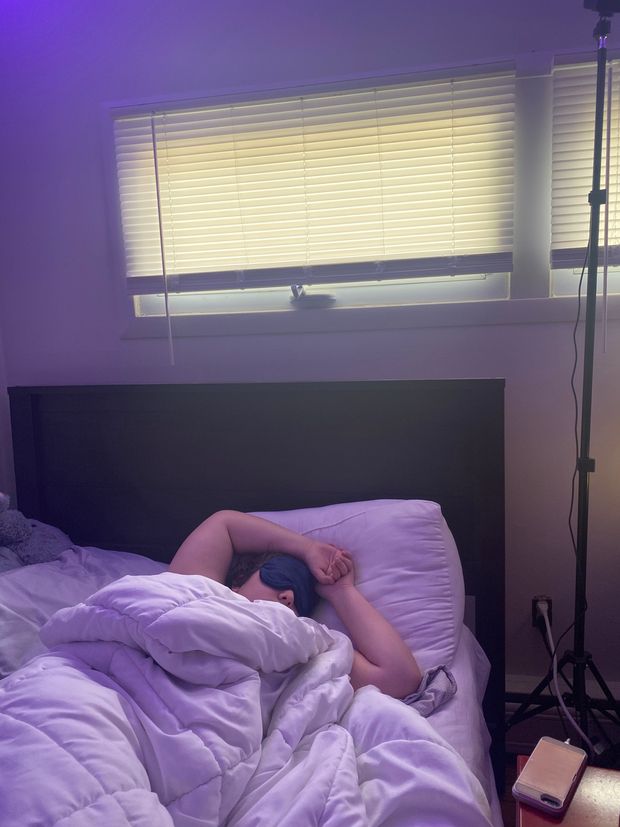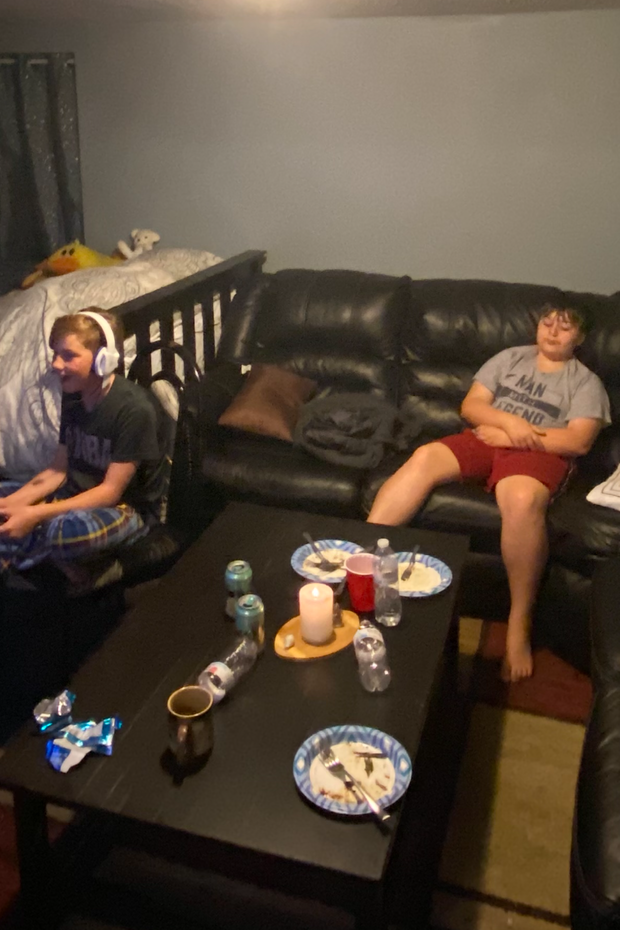
Paul Cancellieri wakes up most mornings around 6 a.m. He makes himself breakfast. Then he says good night to his 16-year-old son, Cole.
Cole, a high-school junior in Wake Forest, N.C., is one of the American teens who have gone nocturnal in the Covid-19 pandemic.
While some schools require students to log on to live classes, many others are instead assigning work for students to complete on their own. With no daytime commitments, some teens prefer to stay up all night and sleep days.
Some watch movies or chat with friends on similar schedules. Others do homework without their folks hovering.
“I feel more relaxed, honestly,” said Zach Zimmerman , a high-school senior in Mansfield, Texas. That was in April, when he was in the habit of going to bed around 10 a.m. and waking up in the late afternoon.
This month, Zach started taking an online college class that starts at 1 p.m., forcing him back to daylight hours. “When my college classes are over,” he said, “I’ll probably go back.”
Share Your Thoughts
What new habits have you picked up during the pandemic?Join the conversation below.
Some parents welcome the daytime peace and quiet. They say it isn’t worth arguing over bedtimes when teens are stuck at home and have no compelling reason to rise early.
Gabrielle Powell , a 17-year-old in Escondido, Calif., spends her nights on Snapchat and video calls with friends. She plows through TV shows like “Tiger King: Murder, Mayhem and Madness” and “All American,” she said, and makes macaroni and cheese. Her post-dawn bedtime varies.
She recently broke her routine for the Advanced Placement calculus exam, at the ungodly late 11 a.m. Gabrielle stayed awake the rest of the day before going to sleep, but she soon returned to the night shift.

Gabrielle Powell sleeps after an all-nighter.
Photo: Lori Powell
Cole Cancellieri ’s dad, a middle-school science teacher, pieces together his son’s overnight activities.
“It’s almost like being a crime scene investigator,” Mr. Cancellieri said. “I’ll find the wrappers from some snacks that he had, there will be dishes in the sink from what he ate. Sometimes he’ll leave the TV on to what he was watching….It’s like having a raccoon that came through my house in the night.”
Some parents are content to share evening meals, which the adults call dinner and their kids call breakfast. Others mourn the hours of lost family time.

Ben Kellogg finds eye shades useful.
Photo: Lauren Kellogg
Lauren Kellogg , of Ledyard, Conn., used to talk with her 14-year-old son, Ben, during the drive to and from school. Now, he sleeps during the day.
“This is going to sound terrible because he’s my only child—I probably see him for like 10 minutes a day now,” she said.
Some parents are fed up with split schedules. Dana Hamilton of Birmingham, Ala., said she and her husband wake their son, Preston, some mornings to yank his schedule closer to theirs. The high-school senior prefers to sleep until midafternoon.
“Sometimes, my dad just wants me to wake up for no reason,” Preston said.
Some moms and dads are seeking professional advice about nocturnal teens. Laura Sterni , director of the Johns Hopkins Pediatric Sleep Center, fields calls from upset parents and said they have reason to worry.
“If it keeps going, it really gets hard to shift back to a normal schedule,” Dr. Sterni said. “We’re really telling people, our young patients, please try and stay on as normal a schedule as possible.”
Staying up late is part of a natural transition from childhood. The internal clock of teenagers tends to shift about two hours later than when they were kids, though they still need eight to 10 hours of sleep. That is why many sleep scientists campaign for high schools to start later in the morning, Dr. Sterni said.
Sebastien Luce , of Auckland, New Zealand, got an early school holiday because of the pandemic and slipped to nights, playing guitar and videogames with friends while his parents slept.
“You’re free of distractions,” the 16-year-old said. “During the day, my parents are always coming in and vacuuming and yelling at me.”
Sebastien’s mother, Lea Narciso , said she had been fighting with her two teenage sons about bedtime and screen time.
“I was unplugging the modem and taking it to bed with me and sleeping on top of it, and that created a lot of conflict,” she said. “The kids, when I was grousing about it, said, ‘Mom, the prime minister said it’s OK!’”
New Zealand Prime Minister Jacinda Ardern discussed changing teenager sleep habits during a wide-ranging conversation with psychologist Nigel Latta posted on Facebook in early April. “Don’t worry if they live the vampire lifestyle of young people,” Mr. Latta advised.
Parents should cut their teens some slack in these tough times, Mr. Latta said Thursday: “If your kids want to go to bed at 4 a.m. and get up at 2 p.m. then that’s just fine. Biologically, that’s where their brains are at anyway.”
When Sebastien’s school holiday ended, the teenager started online classes in mid-April and struggled with the return to daytime hours.
As U.S. businesses prepare to reopen, and states start to relax stay-at-home guidelines, some parents are trying to get their teens back on track.

Jameson Jones, right, with his cousin Danny Stern.
Photo: James Jones
For a while, James Jones of Benicia, Calif., and his 12-year-old son Jameson mostly saw each other over breakfast. Mr. Jones sometimes woke up during the night and checked on his son. “Most of the time, he was just watching ‘King of the Hill’ and eating a microwave burrito,” Mr. Jones said.
After prodding from his parents, Jameson has mostly resumed his traditional bedtime hours. Mr. Jones found readjusting his son’s sleep schedule easier than expected. “I think he was missing us, too,” he said.
Write to Nicole Friedman at nicole.friedman@wsj.com
Copyright ©2020 Dow Jones & Company, Inc. All Rights Reserved. 87990cbe856818d5eddac44c7b1cdeb8